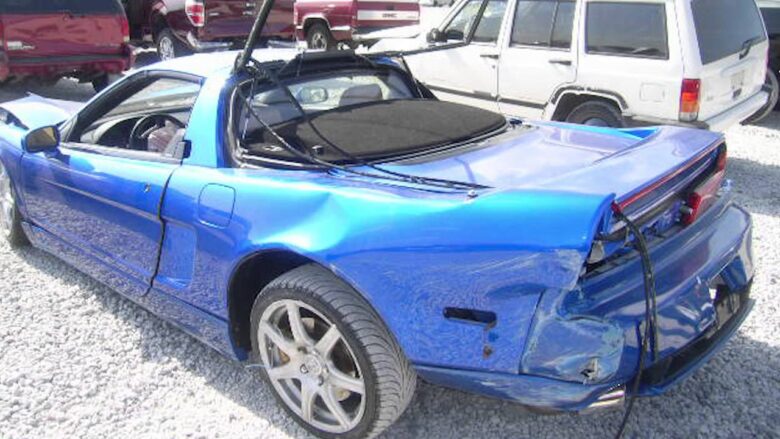For the purchase of a vehicle, it is common for many people to go for the new exquisite models or even buy a second-hand model they feel is worth their money. But what happens if you come across a salvage title car? This term might not be very appealing to some, but it can also mean getting previous masterpieces at a bargain that are only waiting for the right owner. A salvage title means a car is so badly damaged that the insurance company declares the vehicle a loss and never to be used on the road again. But they do not all look the same.
As you enter the sphere of automotive purchases, it is quite normal to appreciate this fascinating mode of ownership from either of its conversions. Are you now ready to understand adverse as well as positive angles regarding owning a salvage title car? Time to close the doors; let us see everything that you must consider before going for it!
What is a Salvage Title Car?
A salvage title car is a car that has been classified by an insurance company, and the company considers it uneconomical to repair because the extent of the damages is too extensive. This common occurs after some ED sports find cars from accident vehicles or from floods or any illegal activity to cause they are thieves. In such instances where the projected costs of fixing the car exceed a certain percentage of its cost, such cars are secured and termed as salvaged.
The title also indicates that certain degrees of inspection and repairs were performed on the vehicle to make it fit for use once more. Still, these salvage cars are not always in the condition of total loss; sometimes they have no big damages but small details were done efficiently.
Purchasing these types of cars can greatly lower the initial cost of owning a vehicle. But it is equally very important to know what to expect before you rush out to buy one. As much as the salvage title is advantageous, there are also disadvantages that every buyer should make sure they assess out.
What Steps Are Taken to Obtain a Salvage Title?
Usually, a vehicle is assigned a salvage title after it has suffered some disaster and is no longer in a drivable condition, usually due to an accident or a natural disaster. The insurance companies do play an important part regarding this.
When the damage exceeds a certain percentage (usually about 70%–75%), then insurers may regard such a vehicle as a total loss. Such classification means that there are no realistic means of making that vehicle operational economically for the owner.
When a vehicle is a total loss, a salvage title will be issued to the vehicle by the insurance company. This is, as explained earlier, a title that enables a huge transfer of ownership capacity since it reveals that so much restoration would be needed in order for the vehicle to be roadworthy again.
Also, vehicles can also get salvage titles after being recovered from theft and also being repaired after being flooded. This is because this damage assessment varies in each state’s definitions of what’salvage’ might include; hence, it’s best to verify where you are planning on purchasing such cars from.
Pros of Buying a Salvage Title Car:
To put it simply, one of the main unethical arguments in favour of acquiring such salvage title cars is the financial benefit. Using clear titles, these vehicles are priced remarkably lower than similar vehicles; thus, the buyers will go further in terms of their budgets.
Most salvage vehicles can actually be fixed and made roadworthy again. Most people tend to overlook these, but if you are useful or fancy having a helpful friend who is a capable mechanic, you might get some good opportunities.
Your insurance costs could be lower on some salvage title vehicles, but this is determined by your provider. This is likely to help you cut costs in the long run while at the same time giving you dependable mobility.
If you have a passion for unique projects or classic cars, a salvage title could present you with opportunities that would otherwise be of no help. So restoring those types of vehicles not only provides a relief in terms of finances, it also allows you to take satisfaction in the fact that you are revamping and recreating them.
Possessing a salvage title vehicle shall develop a love for car history as well as individual car-building endeavours. Every restoration odyssey has its own tale.
Cons of Buying a Salvage Title Car:
Offering a salvage title car entails many advantages; however, it bears several risks along with other potential advantages. One of these risks entails concealed problems that undermine the overall value of the car. A salvage vehicle may have experienced extreme injury that is not apparent.
Insurance can also be a bit complicated. A lot of them do not like to write salvage title policies or offer them but at a steeper rate due to the risks involved. This may lead to costs not anticipated coming up.
Resale value raises additional headache and headache. The salvaged vehicle will also tend to lose its value quicker than the normal clean title. If you are planning to dispose of the asset after some time, this may minimize your return on investment in a great deal.
Moreover, options for financing may also be restricted. Most banks and financiers consider these types of cars as not worth the risk; hence, most loans are quite difficult to come by.
It can be hard to find good repair services for salvage cars. Not every body shop will have the abilities or the desire to fix those, which leads to further trouble with repairs in the future.
Factors to Consider Before Purchasing a Salvage Title Car:
Before rushing in the purchase of a salvage title, it is important to have a self-assessment first. Understand the vehicle’s intended use. Will it serve as a car that will be driven every day, or will it be a car that is only a work in progress? After that, find out what make and model you would like. Some of them, after being damaged, are more hopeful of repair than others. Search for any such issues concerning those cars.
Keep inspection expenses in mind as well. Trustworthy mechanics can find hidden defects that aren’t obvious to untrained consumers in our initial basic inspection. Insurance options should also be on your radar. Many of these insurance companies have a negative view on salvage titles, which will make getting insurance quite difficult.
Consider the resell value of the vehicle in the future. Unlike cars that bear a clean title, a salvage-titled vehicle or salvage title will not appreciate in value too much in the future, even when maybe there is the desire to sell the vehicle for better models.
Steps to Take When Buying a Salvaged Title Car:
Let’s start with the most obvious step: do your homework. Know the particular salvage title laws in your country or state. This is because regions have various laws concerning their vehicles. Then, look for reputable sellers or auctions that sell salvaged cars. Consider ratings and comments of other once-but-hopeful buyers to determine their reliability.
If you have to buy a car, it is always advisable to ask for a vehicle history report before any purchase. This will give an idea of previous damage or accidents that made the title rebuilt salvage. After that, it is time to inspect the physical condition of the car. If possible, partner with a qualified mechanic when performing inspection. Certain defects take time to notice and a mechanic can be of assistance.
Don’t skip on haggling about the price so as to offset the costs of various repairs likely to be anticipated following the purchase of the vehicle. This step is critical because salvaged title cars come with great negotiation plans owing to their state. Be careful to ensure all relevant policies precede head of sale. Verifying all essential documents are in place is essential, as it saves unnecessary headaches in future documents.
Conclusion:
To sum up, the considerations need to be read very carefully for the sake of the buyer. For people wishing to brave its challenges, purchasing a salvaged title car may sound interesting. It is very likely to save in costs while also acquiring interesting cars as well. Nevertheless, it is important to understand that their use also carries certain liabilities. Get a full understanding of the vehicle’s history before making any commitments.
In case you have urgency to buy such a car, take a moment to think through the decision. It is advisable to do all the due diligence and ask for help if necessary. This is all about finding the right mix of risk appetite and risk management in your automotive adventure. Relish the experience of finding out what is right for you!
FAQs:
1. What is the meaning of salvage title?
A salvage title indicates that a particular vehicle’s damage is so severe that the insurance company has also included it in its total loss division. This may be due to collisions, water damages, or ready-made harm by assailants.
2. Is it safe to drive a salvage title vehicle?
Although a number of supports reported on damage and crash incidents and indicated that many salvage title cars can be restored and made roadworthy, the safety of such vehicles lies on the inspection by a professional mechanic. Safety comes first, always.
3. Can I borrow money to buy a salvage title car?
When it comes to salvaged vehicles, financing options can be extremely dissimilar. Many traditional lenders may refuse the provision of finance to such cars. Still, quite a few such lenders will accept these types of loans.
4. Can I insure a salvage title car?
A very serious risk of insuring a salvaged car may present itself as well. Some insurance providers won’t offer coverage at all or will limit it based on the amount of work done to restore the vehicle.
5. What cost difference should I expect from a salvage-titled vehicle relative to one with a clean title?
Generally, one could realize savings of between 20% and 50% of the market price relative to such models, which do not have had damages of any kind in history. The price difference can depend not only on repairs done but also on general car liabilities.




